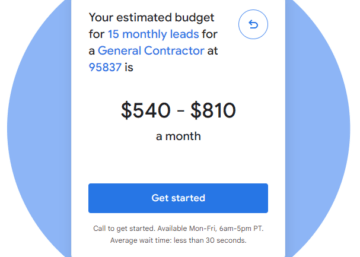In September 2020, Apple released IOS 14, which brought changes, such as giving Apple users an easier way to opt out of data sharing every time they download an app. These changes can have a huge impact on your advertising and marketing strategies. Advertisers have been relying on data sharing for both paid search and paid social advertising to gather data so that they can serve ads to the appropriate target audience within their service area.
1. What Has Changed with IOS 14?
Apple’s most recent changes to its privacy and sharing policies, also known as Apple’s App Tracking Transparency Framework, is connected to a set of numbers called The Identifier for Advertisers (IDFA). Each iPhone comes with its own IDFA that offers advertisers aggregate data about the user’s preferences and behavior.
In the past, Apple users had to take the time to go into their settings app to turn off data sharing functions. Now the new IOS 14 update shares a pop-up message every time the user downloads a new app or opens previously installed apps to ask if the user wants to grant the app access to track their activity across other apps and websites.
Whenever users choose to opt-out of the app tracking, this new operating system won’t allow advertisers to easily target or exclude particular users as they could in the past. While some individuals agree that this new IOS 14 update allows users to better control who can see their personal data, marketers and business owners are concerned about many users selecting the option of “Ask App not to Track” and how that will affect and hinder their marketing strategies and spend.
2. Which Ads are Impacted by the Update?
Google Search Campaigns
Search campaigns are partially in the clear from the IOS 14 Update. Since Google Search Campaigns are based on keywords and searches versus a user’s characteristics and preferences, the IOS 14 update and its effect on tracking has no impact. However, Search Ads using a Retargeting List will be impacted moving forward. For example, traffic coming from IOS 14 users will no longer be identified as before. Instead, they will be grouped by interests, making tracking less accurate.
Google Display Campaigns
Unlike search campaigns, display ads and campaigns are auction-based and dependent on user data like personal interest, age, gender, household income, and parental status. With the IOS 14 update, more and more people are opting to not share their data. As a result, some of their past behaviors and characteristics will be less visible, and targeting will be restricted to the current page a user is viewing.
Youtube Campaigns
Two of Google’s properties have widely used apps: YouTube and Gmail. When somebody using the YouTube app clicks on an ad, those cookies will now be blocked by Apple’s ATT policy. This restricts data to a single session and means that accurate conversions aren’t sent back to Google. Which can skew your campaign metrics and overall reporting.
However, if users have a Google account linked to their YouTube account, this may grant advertisers access to their previously watched videos and personal characteristics.
Facebook Pixel
The Facebook Pixel will no longer be able to store information and inform ad campaigns for users who chose to opt-out for tracking. In addition, Facebook reporting will no longer include off-platform actions, like website events, and will only be able to track a small number of objectives due to the new Pixel restrictions. This not only affects targeting efforts, but also causes potentially inaccurate reporting. Inaccurate reporting can make decisions on what to share and how to spend advertising dollars more difficult
3. Solutions for Marketers
You didn’t think we were going to share all the problems with this new IOS 14 update and not offer any silver linings, were you? Here are some of the ways we are navigating this new environment of marketing.
Moving Away from tROAS
Google has already advised marketers to utilize the Target Cost per Action (tCPA) bid strategy rather than the Target Return on Ad Spend (tROAS) strategy. This not only helps with scaling, but advertisers should also notice a more consistent performance with this simple change.
Use a Global Site Tag
Additionally, advertisers can help measure app-to-web conversions by implementing a global site tag. Google Tag Manager is a simple tool to use when implementing site tags.It offers more control over first-party data. GTM also offers more protection against future changes in the advertising industry.
Focus on First-Party Data
In fact, first-party data should be the new focus for your marketing team after the IOS 14 update. One of the reasons why this update is so problematic is because most advertisers still rely heavily on third-party data. This may not be a surprise, but the advertising industry has been moving away from third-party data and cookies for many years now. The longer you wait to adapt to these changes, the harder it will be to adapt, leading to a significant impact on your business and advertising. Even Google will remove cookie tracking from its Chrome browser in 2022.
Switching to a database owned by your business allows you freedom from external industry changes. Gather as much information and data as you can through your website, social media, email campaigns, surveys, and more. As you build up your first-party data, you can utilize it for Lookalike Audiences and Customer Lists instead.
4. What are We Doing for Our Clients?
As a team, Keokee Contractor Marketing is constantly researching new changes in the digital marketing industry and adjusting our marketing strategies accordingly. We have taken the changes described above into account and have made the proper adjustments for our clients. This includes how we adapt to each platform’s tools, making sure we comply with the new tracking rules. We continue to stay up to date with the latest privacy laws, researching and reviewing new tools available that offer new opportunities for our clients and implementing the ones that best fit their business needs.
Have questions or want help updating your digital footprint to comply with the IOS14? Give us a call or shoot us an email.



